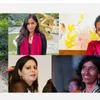Artistic creativity, pandemic resilience: highlights from the India Art Festival 2022 in Bengaluru
In our second photo essay from IAF 2022, we showcase more delightful artworks along with artist insights on creativity and resilience. Enjoy!
Launched in 2014, PhotoSparks is a weekly feature from YourStory, with photographs that celebrate the spirit of creativity and innovation. In the earlier 650 posts, we featured an art festival, cartoon gallery, world music festival, telecom expo, millets fair, climate change expo, wildlife conference, startup festival, Diwali rangoli, and jazz festival.
The second Bengaluru edition of the India Art Festival is being held this week at Palace Grounds (see Part I of our photo essay here). Founded in 2011, the India Art Festival (IAF) network comprises art fairs in New Delhi, Bengaluru and Mumbai.
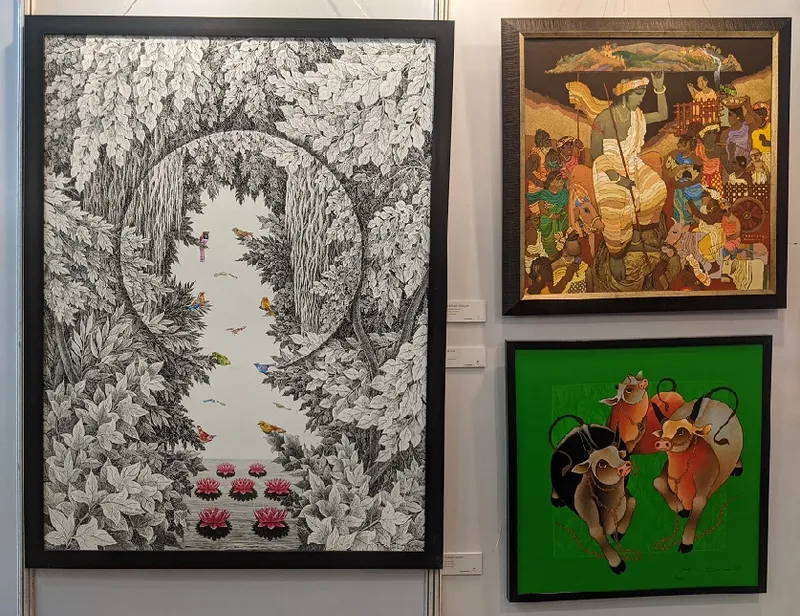
The festival promotes dialogue and collaboration across the art ecosystem and showcases established as well as emerging artists. It provides valuable opportunities for peer learning and networking for the art community and a wealth of visual treats for the public.
This year, the Bengaluru festival showcases 450 artists, 100 booths, 4,000 artworks, and 30 art galleries. In this photo essay, we showcase more visual highlights, along with artist insights on creativity and resilience.
Artworks
“I made the work The Ocean, You specially for the India Art Festival. I have a deep fascination for oceans. They seem so powerful, magnetic and mysterious,” explains Bengaluru-based artist Anusha Adabala, in a chat with YourStory.
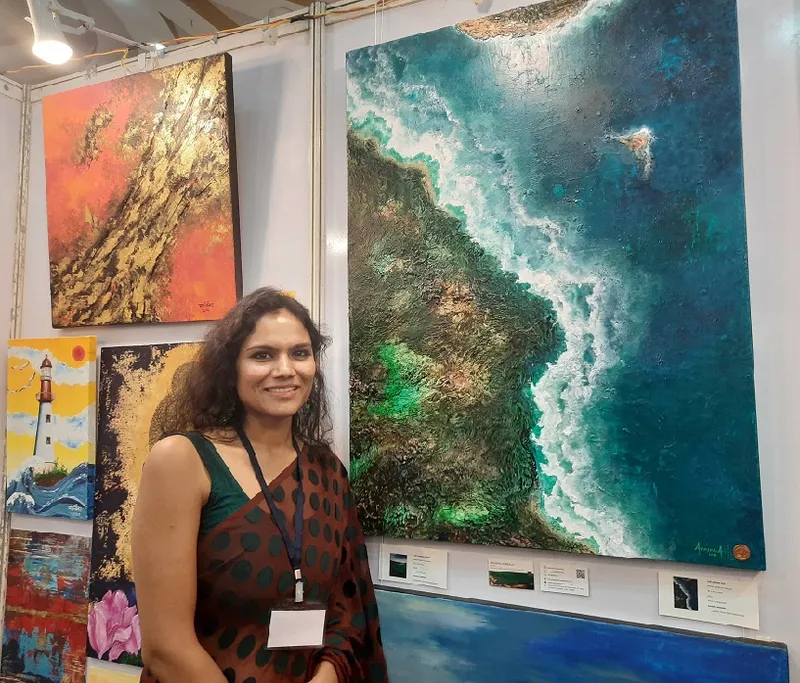
Anusha Adabala
Her other works are titled Permanence of Love, Lotus, an impressionist-style textured work, and Between Always and Never, a textured landscape. Next year, she will be working on commissioned works and new ideas for exhibitions.
“I am mesmerised by the beauty and detail in nature. My work is an ode to those delightful details in everyday nature,” Priyanka Sehgal explains. Her artworks bring about a creative twist to those details.
“So whether it's the fur of an animal, feathers of a bird, structure of a leaf, or the branches of a tree, my work is about extending, accentuating and metamorphosing those details to make them my own,” she enthuses.
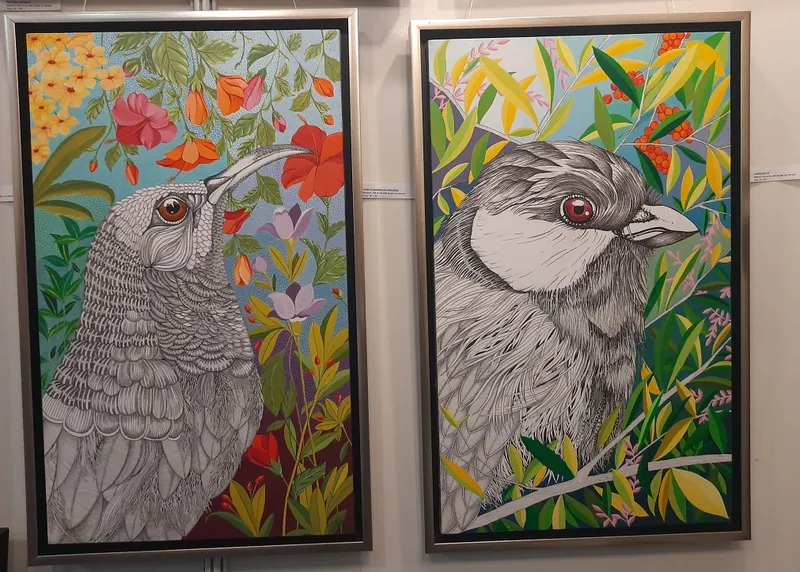
Artist - Priyanka Sehgal
She sees her artworks as a labour of love as well as a way to delight viewers with the possibilities. The pen, ink, and acrylic works are priced from Rs 15,000 to Rs 1.5 lakh.
Karthik Kamath showcased oil paintings of Buddha, and a range of animals. The patience and detail needed leads to a period of 10 to 30 days to complete each painting.
"They connect me to nature and peace,” he describes. The artworks are priced from Rs 5,000 to Rs 55,000.
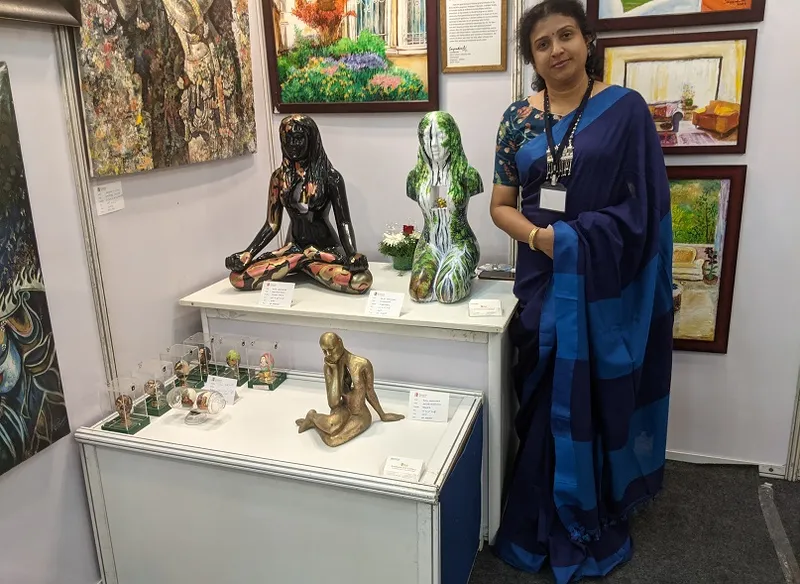
Roja Sanchana
Roja Sanchana reflects the blissfulness of the lotus, across fibreglass and bronze artworks. Some of the sculptures feature the human body with a bell in the centre. “The body is our temple and the bell shoos away the darkness and ignorance within,” she describes.
Titled Athmanubhava, Athmananda, and Antharvikshanam, the artworks are priced from Rs 1 lakh to Rs 5 lakh. Roja has also won an award from the Prafulla Dahanukar Art Foundation, Mumbai.
“For me, the most important relationships are those which I share with my family and friends. I paint my childhood memories,” Monica Ghule describes.
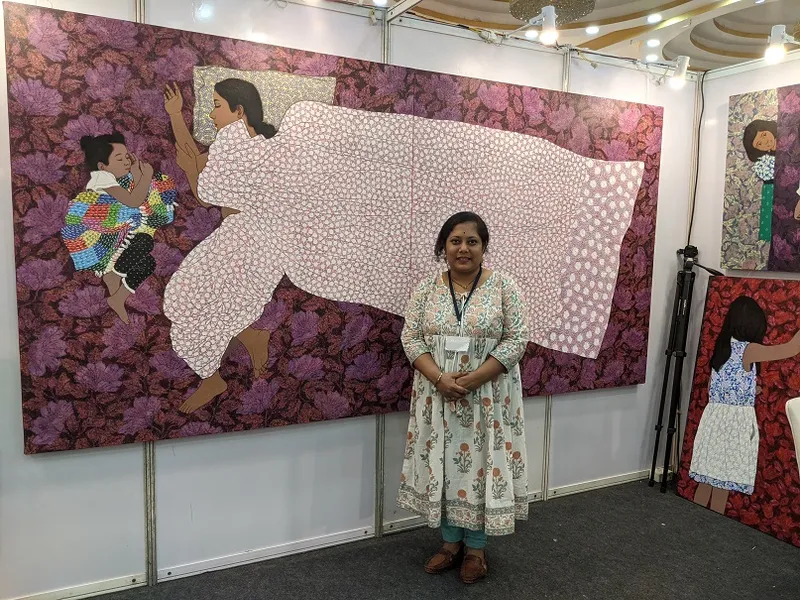
Monica Ghule
“Though I do not have a sister, I imagine how it would be to have a sister. My longing for her comes through my paintings,” she adds. She tries to find a sisterhood in her friends, which she depicts in her paintings.
“In my earlier days, my paintings were around motherhood and the relationship between siblings. After I become a mother, I started integrating my relationship with my child through the paintings,” Monica says.
Jayaram Krishnan prepared a work of art depicting Lord Jagannath. “I wanted to have a change, hence I showed him peeping out of his durbar door in a loving manner,” he says. His artworks are priced from Rs 6,000 to Rs 20,000.
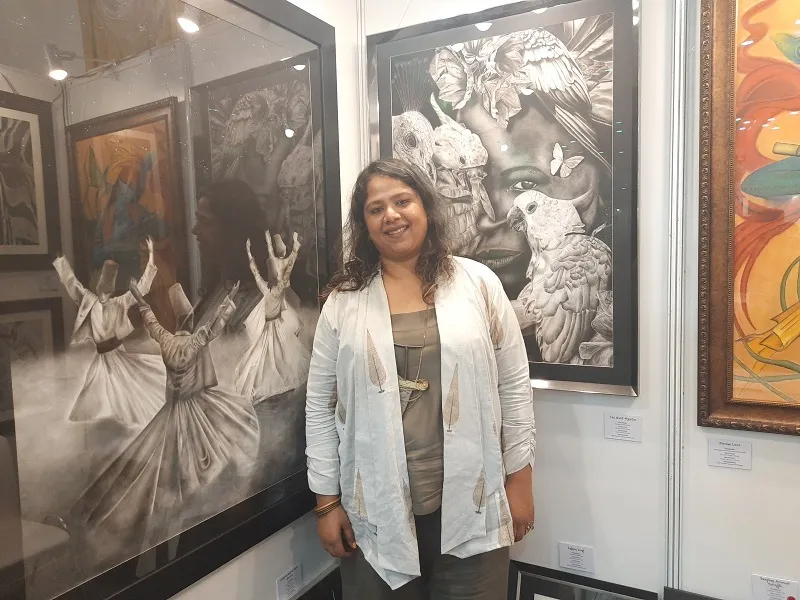
Akshata Shetty
Akshata Shetty displayed her ballet series in charcoal, and a Lord Krishna piece called Divine Love in pastel pencils and charcoal. “I took up the ballet series as a challenge to complete in charcoal. It really shows the control of one’s hand in the way the distressed shoes are depicted, or the way the muscles in the legs are portrayed,” she describes.
She tried to make every stitch and elastic stretch of the shoe as hyper-realistic as she could. There was a lot of learning while doing the Lord Krishna piece, and she was happy with the vibrant outcome. Her artworks are priced from Rs 10,000 to Rs 2.5 lakh.
Sangita Baruah Sureka showcased her recent paintings The Contagious Aura and Warmth. They capture the joy of contagious laughter, and the warmth she felt on a recent trip to Ladakh. Her artworks are priced from Rs 15,000 to Rs 30,000.
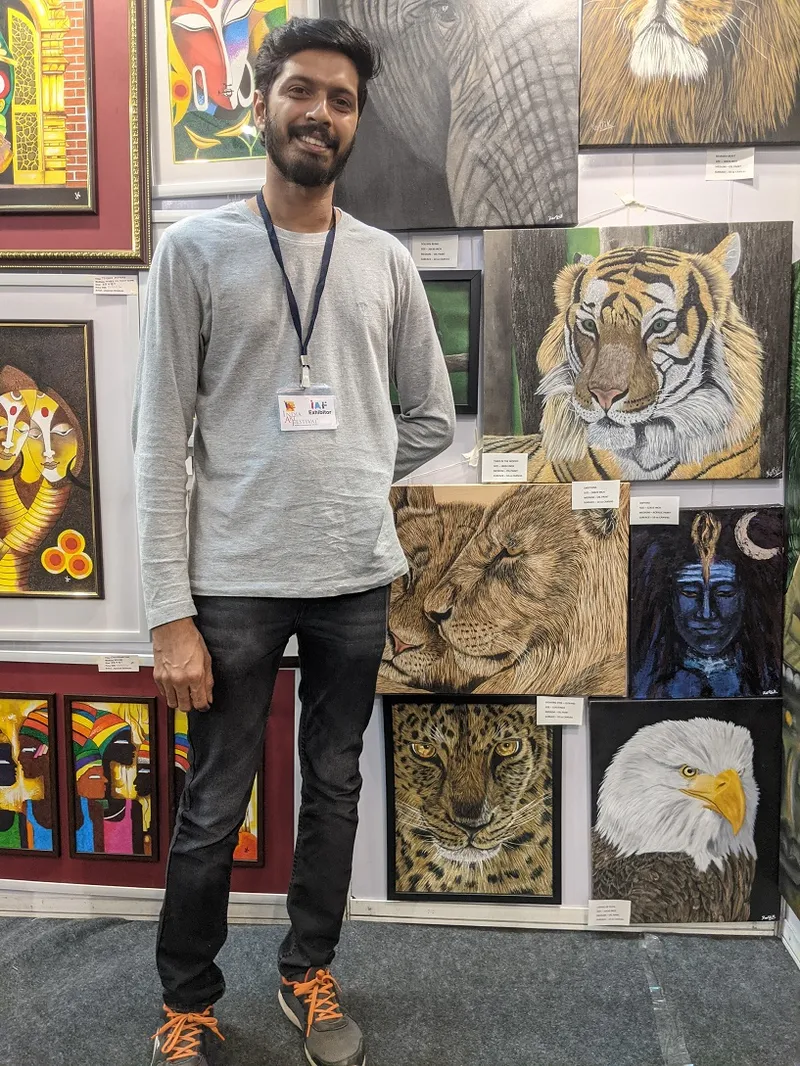
Karthik Kamath
Tejaswi Poojari displayed iridescent paintings that glow in the dark. Some of them have backlit resin artwork with quartz crystals. Her artworks are priced from Rs 10,000 to Rs 1.5 lakh. “I use genuine crystals and abalone shells in my resin paintings,” she says.
Pandemic resilience
The pandemic caused immense loss of lives and livelihood. The art community was adversely impacted by the closures of galleries and festivals, but many bounced back by embracing the digital medium.
“The second wave of COVID hit my life really hard when I lost my father to COVID. His COVID experience and death left me shattered to pieces. Art is my only therapy that got me out of that depression,” Tejaswi Poojari says.
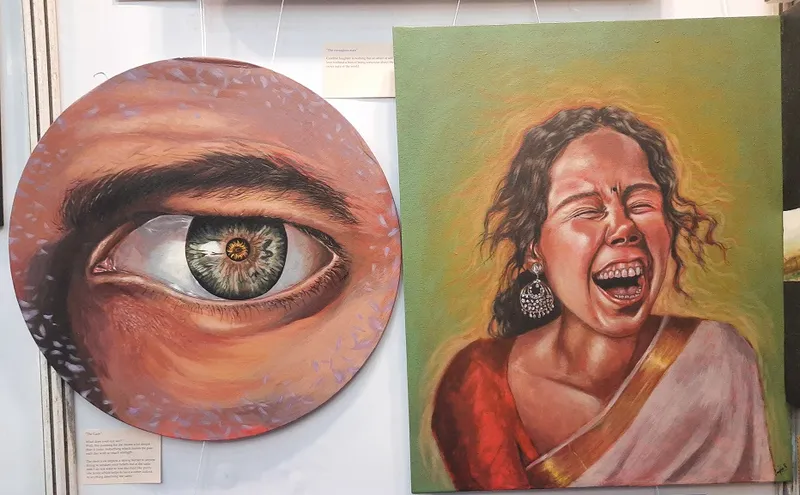
Artist: Sangita Baruah Sureka
“I collaborated with my husband on a project to raise money for migrant workers, which was very fulfilling. I worked on the illustrations for this particular project,” Priyanka Sehgal says.
“Between virtual art festivals, online art galleries, and social media art friends – and shortage of art supplies, fear of losing loved ones – my canvases got bigger, colours grew brighter, and my brush strokes got bolder. I painted as if there was no tomorrow,” Anusha Adabala recalls.
“Physical events now feel like fresh air. With all that energy, emotion, and encouragement I received, I felt very loved and motivated,” she adds.
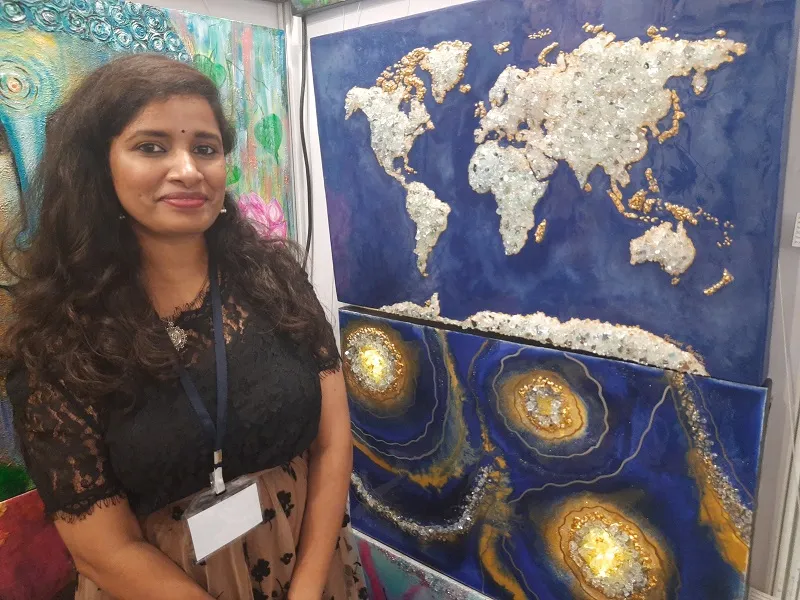
Tejaswi Poojari
“I actually did a lot of artwork during the pandemic and it was my meditative zone with everything that was going around. I found peace in my artwork, I guess one does their best in such a situation,” says Akshata Shetty. She worked on charcoal, doodling and some watercolours.
Sangita Baruah Sureka started focusing much more on developing her website and showcasing her work on social media. “I started facing the camera more which in turn led to an amplified confidence and personal touch to all my viewers,” she adds.
“I did great collaborations online with artists I met digitally. That brought us closer in terms of art community,” she recalls. She started online art classes and workshops as well. “The physical interaction, however, was missed to a great deal,” Sangita laments.
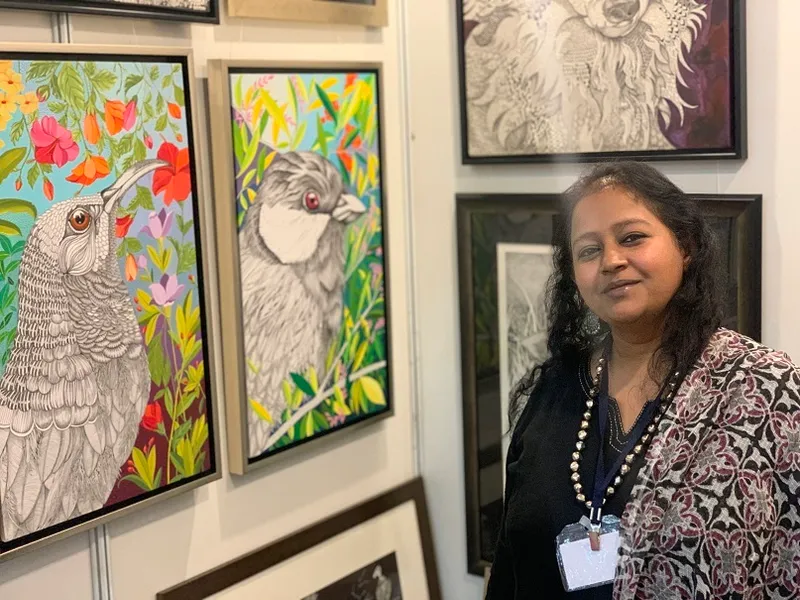
Priyanka Sehgal
“The pandemic has provided me space and time to reflect on various dynamics of life and living. It has given me strength to endure and overcome in reflection of the realities outside,” Roja Sanchana affirms.
“I lost the opportunity to take part in exhibitions physically, no doubt. On the positive side, I kept myself fully engaged in doing various artworks,” Jayaram Krishnan adds.
“I started to grow as an artist after the pandemic. So I would say the pandemic actually ended up being good for my development as an artist,” Karthik Kamath sums up.
Now, what have you done today to pause in your busy schedule and find new avenues to apply your creativity?
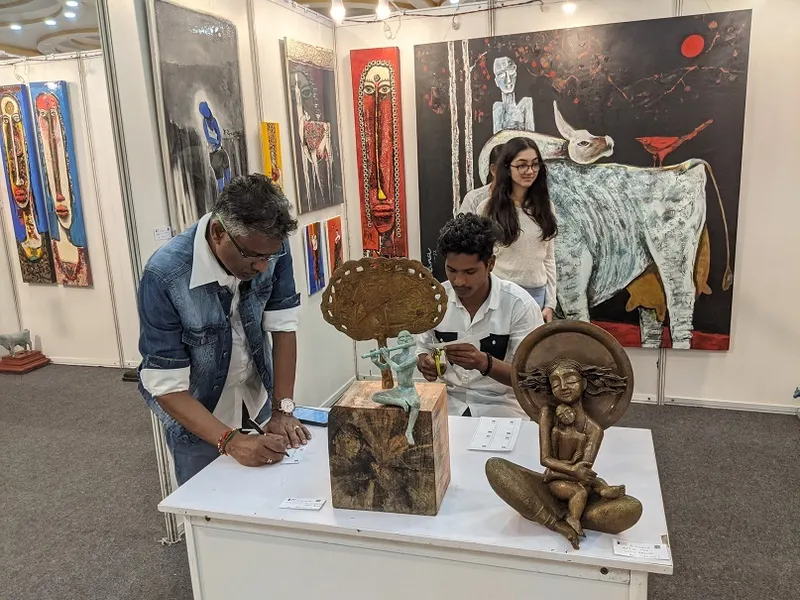
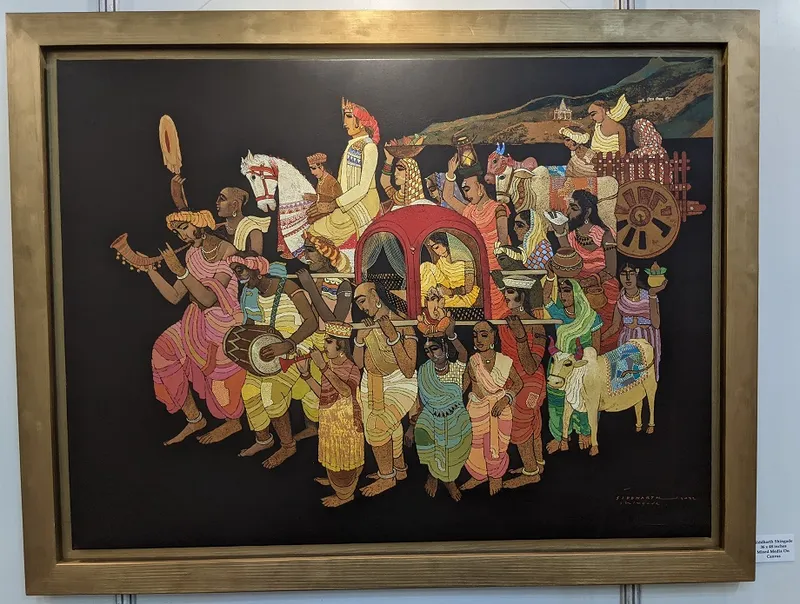
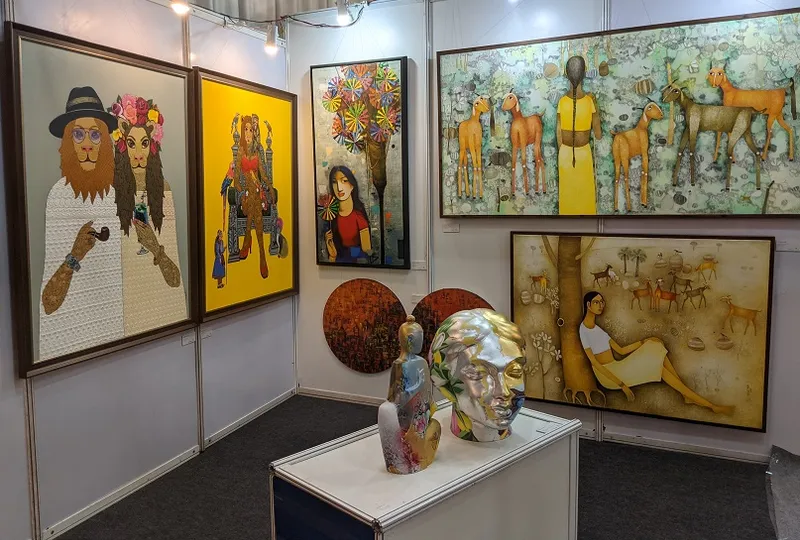
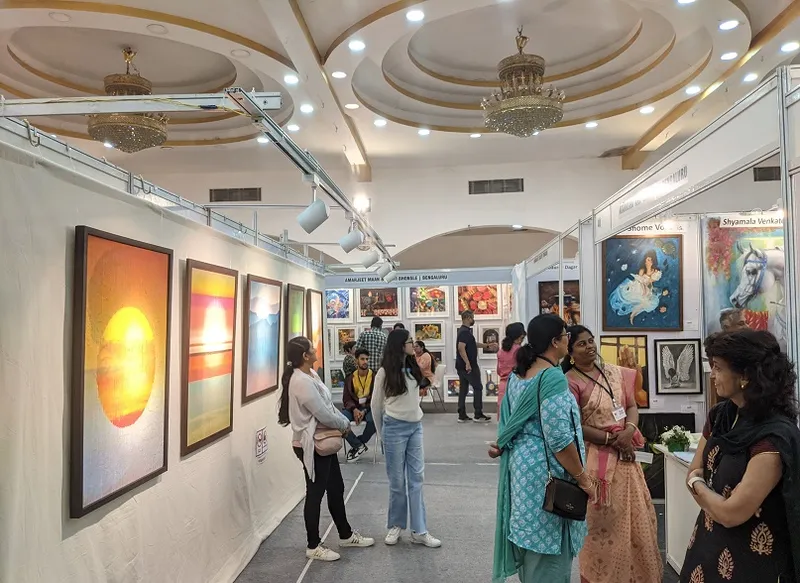
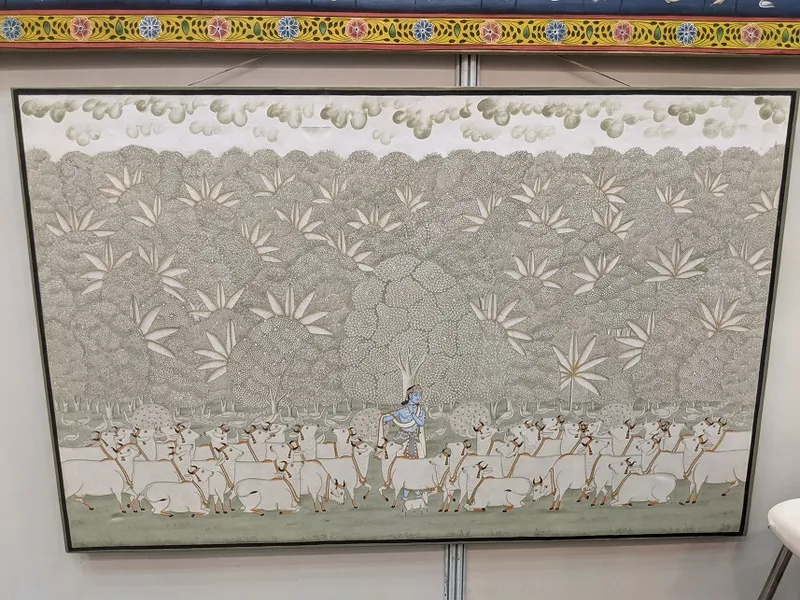
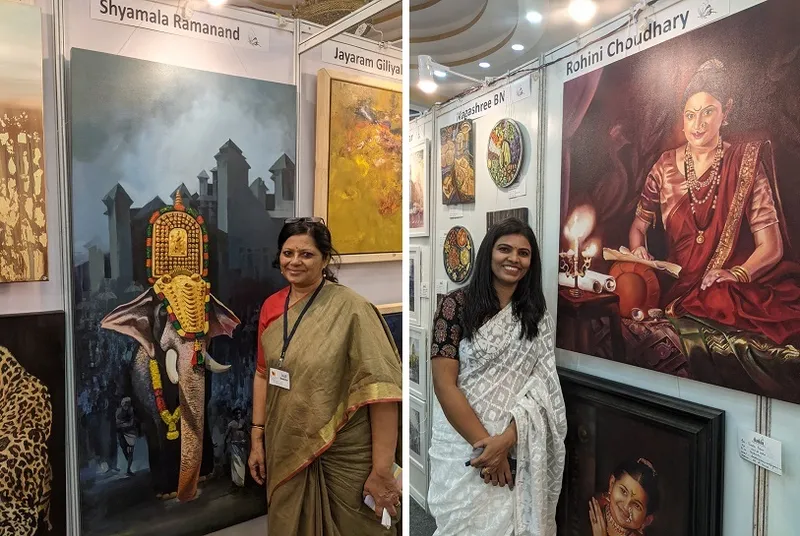
Akanksha Art Gallery
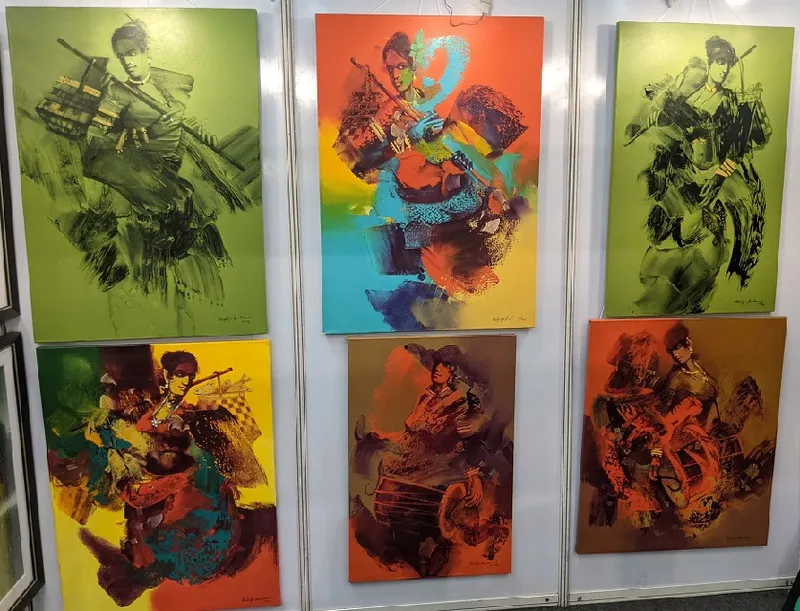
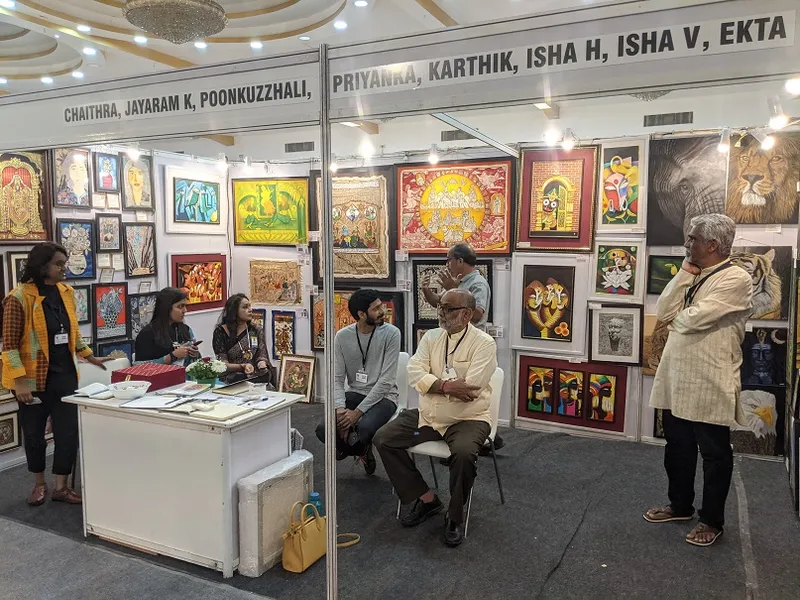
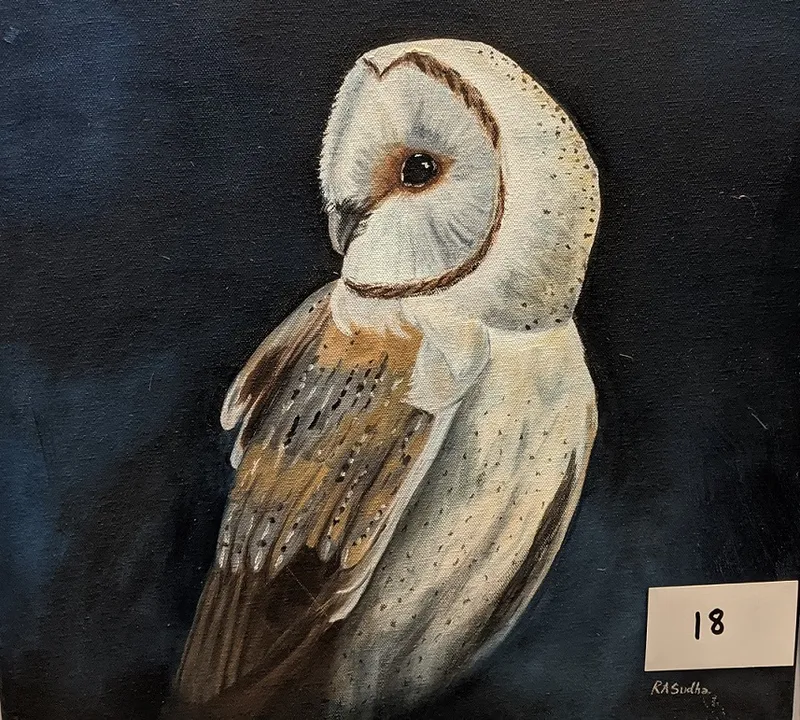
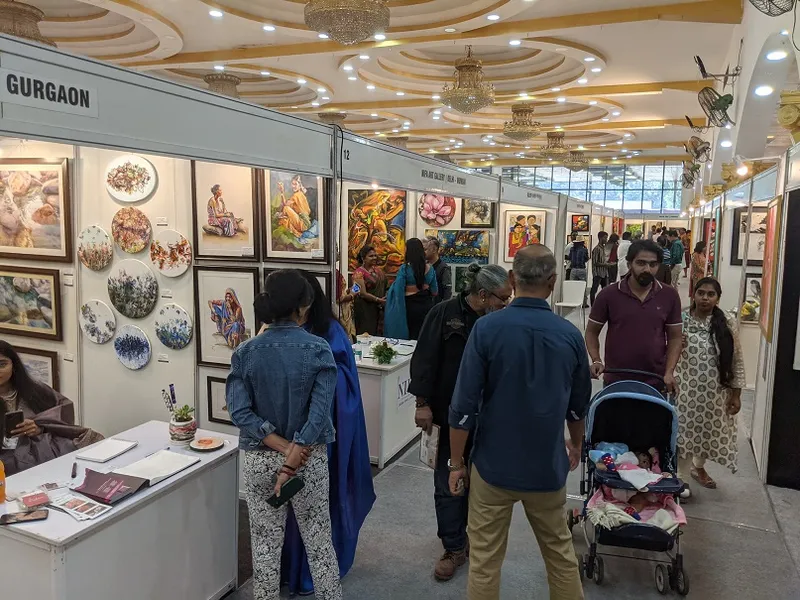
(All exhibition photographs were taken by Madanmohan Rao on location at the festival.)
See also the YourStory pocketbook ‘Proverbs and Quotes for Entrepreneurs: A World of Inspiration for Startups,’ accessible as apps for Apple and Android devices.
Edited by Suman Singh





